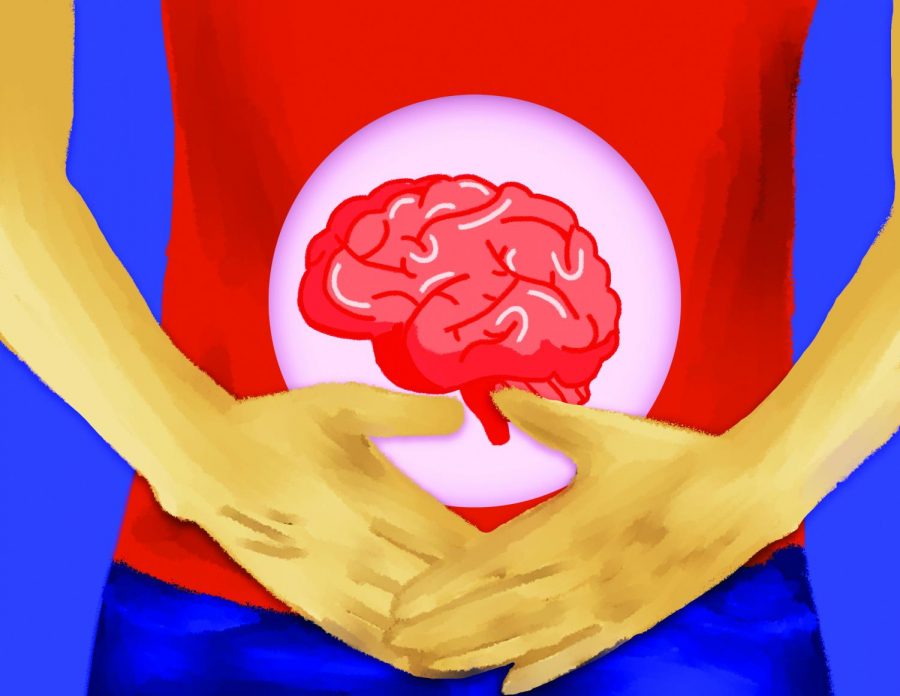Gut health impacts mental health
May 28, 2020
New research suggests the food we eat may contribute or reduce our stress and anxiety levels. Gut health has been identified as a key factor in determining a person’s mental state. For students,
“There are all kinds of neurochemicals that affect the way you think, feel and behave,” Stephen Link, psychology professor, said. “We have the same neurochemicals in our gut and our intestines. We may have even more serotonin sites in our gut than are in our brains.”
According to an article by Ian Sample, Science editor for The Guardian, serotonin deficiency can cause anxiety and depression. If a person’s intestines do not produce serotonin, they may be more susceptible to anxiety or other mental health issues.
“In terms of gut bacteria, people who are trying to help themselves psychologically can eat certain foods that will help them relax,” Link said. “The problem is, everybody’s gut bacteria is a little bit different. So, tomatoes for you may be bad, but for me [they] may be good.”
He said he suggests following a Mediterranean diet – eating lots of fruits and vegetables and less meats and lactose. He added people should eat three small meals a day and try to drink as much water as possible.
Eating a diet that contains many different food types, including lots of vegetables and fruit can help boost gut health, according to health news website Healthline. Fermented foods such as yogurt, kimchi and sauerkraut are rich in beneficial bacteria, too. Foods called prebiotics, such as some starches and fibers, cannot be digested by the human body but can feed the growth of healthy bacteria in the gut.
Most college students’ plates are loaded with many stressors: work, academics, tuition, and keeping up with a social life all contribute toward anxiety and stress.
Matthew Soto, a UNT student, said he tries to take life one day at a time, trying not to stress about the little things. Maintaining a balanced life can be the most stressful, he said, but trying not to stress about things he cannot change can also be a challenge.
Link said people’s stress levels increase as their day progresses. “We need to learn to drop it,” he said, suggesting activities such as taking small breaks, eating well, spending time with friends and exercising. recommends dealing with stress gradually, instead of letting it build to a breaking point.
Brookhaven College has resources for those dealing with anxiety or stress. Brookhaven counselors are still available and can be reached via e-mail at [email protected].
Additionally, the Brookhaven CARE Team can also provide resources for students in distress. All referral forms for the CARE Team can be found at brookhavencollege.edu/services/care-team.



